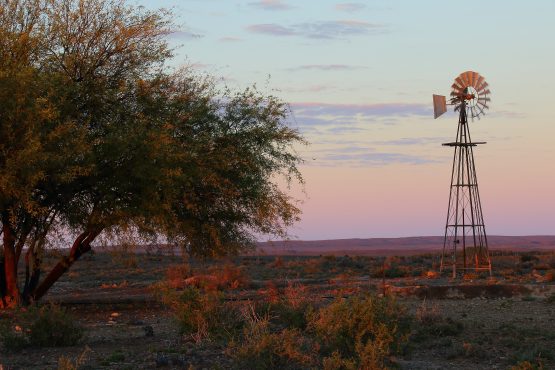'Rather than just the thin gruel of self-righteous indignation that all sides of the land debate seem to be enjoying, a starting point might be to acknowledge where others are right.'

While South Africans have until the end of this month to comment on the draft national land policy for beneficiary selection and land allocation, an academic has found “nothing remotely radical” about the phrase “give back the land”.
Professor Brian Ganson, head of the Africa centre for dispute settlement at the University of Stellenbosch Business School, yesterday said the principle of returning land to those who deserved it was “already contained in the constitution”.
“The current constitution – never mind any amendments – promises restitution to people and communities dispossessed as a result of racially discriminatory laws going back to 1913.
“It gives government a broad latitude to carry this out. Rather than just the thin gruel of self-righteous indignation that all sides of the land debate seem to be enjoying, a starting point might be to acknowledge where others are right.
“The land reform debate largely remains a dialogue of the deaf. Many shout about how they are right and others are wrong.”
Ganson said land reform was “critically important: an unfinished promise to redress historic wrongs and a project that could easily have unintended negative economic consequences”.
“In particular for the poor, it should not be poorly managed.
“How we all go about land reform is also a bellwether of our ability to engage around the construction of the just, democratic and united SA envisioned by the constitution,” he said.
He proposed conflict resolution and problem-solving skills “proven in other long-entrenched conflicts in South Africa”, to shift heated public debate beyond opposing, one-sided arguments.
“In relation to those holding land that may be returned in the name of restitution, we can concede that many of the issues they raise – even if immaterial to the fundamental right of dispossessed people – are real.”
It would be better for all South Africans, he said, “if land reform is managed in a way that confronts the realities of the substantial bonds on many properties, minimising corruption, maximising food security and improving the possibilities for people to make their livelihoods from the land or to make their transition to urban life – each according to his or her choice”.
For more news your way, download The Citizen’s app for iOS and Android.
Support Local Journalism
Add The Citizen as a Preferred Source on Google and follow us on Google News to see more of our trusted reporting in Google News and Top Stories.






